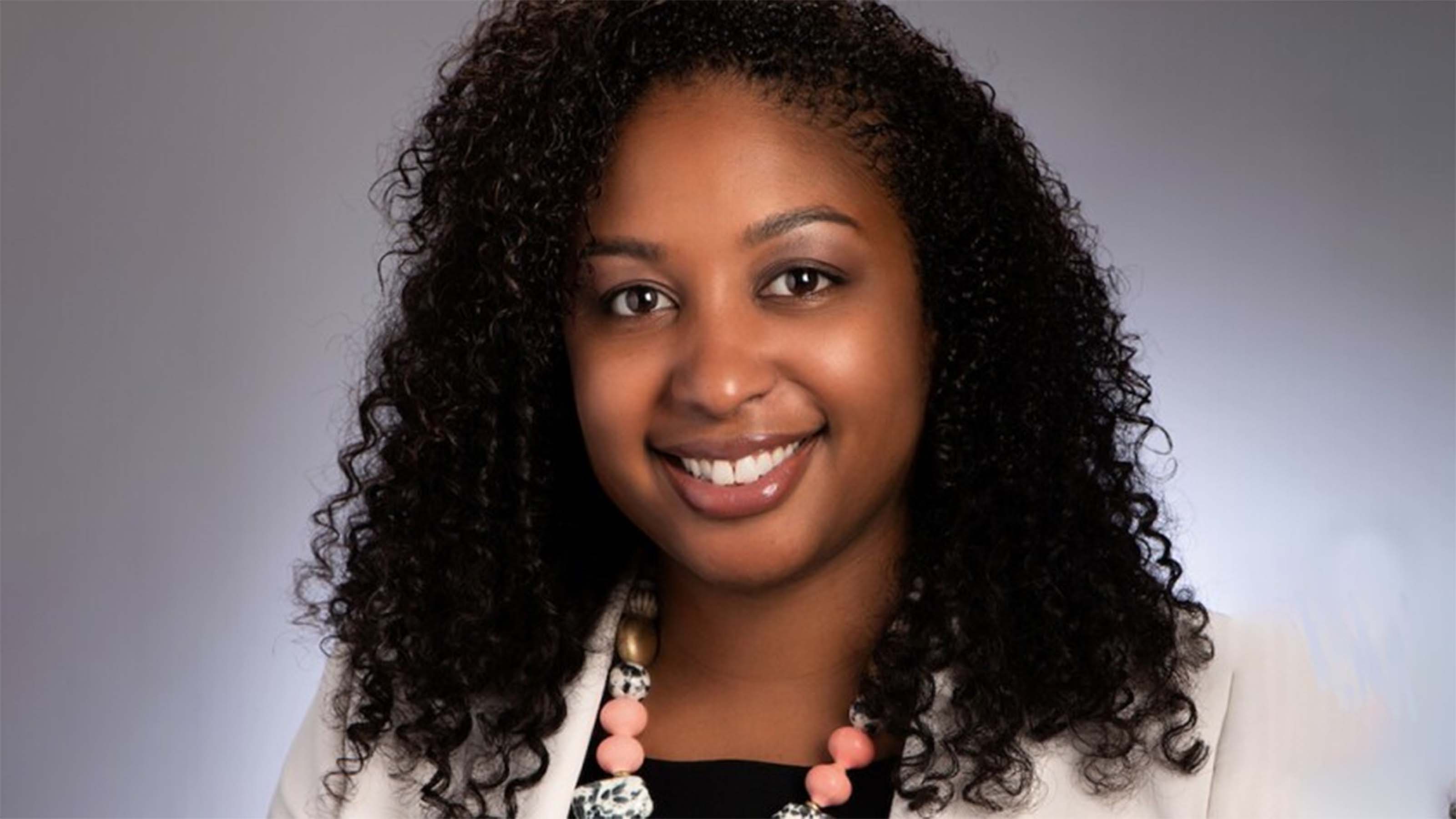The Best ETFs You've Never Heard Of
Kiplinger.com investing guru Kyle Woodley returns to chat with hosts Sandy Block and Ryan Ermey about the market's best lesser-known exchange-traded funds. Also, the cohosts review the leftover ramifications of the SECURE Act.
Profit and prosper with the best of Kiplinger's advice on investing, taxes, retirement, personal finance and much more. Delivered daily. Enter your email in the box and click Sign Me Up.
You are now subscribed
Your newsletter sign-up was successful
Want to add more newsletters?

Delivered daily
Kiplinger Today
Profit and prosper with the best of Kiplinger's advice on investing, taxes, retirement, personal finance and much more delivered daily. Smart money moves start here.

Sent five days a week
Kiplinger A Step Ahead
Get practical help to make better financial decisions in your everyday life, from spending to savings on top deals.

Delivered daily
Kiplinger Closing Bell
Get today's biggest financial and investing headlines delivered to your inbox every day the U.S. stock market is open.

Sent twice a week
Kiplinger Adviser Intel
Financial pros across the country share best practices and fresh tactics to preserve and grow your wealth.

Delivered weekly
Kiplinger Tax Tips
Trim your federal and state tax bills with practical tax-planning and tax-cutting strategies.

Sent twice a week
Kiplinger Retirement Tips
Your twice-a-week guide to planning and enjoying a financially secure and richly rewarding retirement

Sent bimonthly.
Kiplinger Adviser Angle
Insights for advisers, wealth managers and other financial professionals.

Sent twice a week
Kiplinger Investing Weekly
Your twice-a-week roundup of promising stocks, funds, companies and industries you should consider, ones you should avoid, and why.

Sent weekly for six weeks
Kiplinger Invest for Retirement
Your step-by-step six-part series on how to invest for retirement, from devising a successful strategy to exactly which investments to choose.
Ryan Ermey: Looking to broaden your investing horizons? Well, look no further. Kiplinger.com senior investing editor Kyle Woodley joins the show to talk about excellent exchange-traded funds you likely haven't heard of in our main segment. On today's show, Sandy and I dish on leftovers from the SECURE Act, and in a new edition of Deal or No Deal delve into student loan ratings and prescription drugs from Canada. That's all ahead on this episode of Your Money's Worth. Stick around.
- Episode Length: 00:31:49
- Links and resources mentioned in this episode
- SUBSCRIBE: Apple Google Play Spotify Overcast RSS
Ryan Ermey: Welcome to Your Money's Worth. I'm Kiplinger's associate editor Ryan Ermey, joined as always by senior editor Sandy Block. Sandy, how are you?
Sandy Block: Doing good, Ryan.
From just $107.88 $24.99 for Kiplinger Personal Finance
Become a smarter, better informed investor. Subscribe from just $107.88 $24.99, plus get up to 4 Special Issues

Sign up for Kiplinger’s Free Newsletters
Profit and prosper with the best of expert advice on investing, taxes, retirement, personal finance and more - straight to your e-mail.
Profit and prosper with the best of expert advice - straight to your e-mail.
Ryan Ermey: Well, we had an excellent interview in our last episode on the SECURE Act, which we found out is affecting a lot of people's retirement plans, more than I think a lot of our listeners probably thought. It could have been a much bigger, longer interview it turns out, because the SECURE Act has a lot of extra bells and whistles attached to it.
Sandy Block: That's right. There's an expression in Washington, they'll call a bill a Christmas tree, because it's got lots of things hanging on it. This one is particularly apt, because it was passed just around Christmas. It has all kinds of little shiny things on it that kind of have gone under the radar. When we talked to Ed Slott last week, we talked a lot about an aspect of the bill that people don't like, which affects people who inherit individual retirement accounts. But these provisions, I think a lot of people are going to be happy to see. For example, one of the provisions will allow part-time employees to contribute to a 401(k) plan.
Sandy Block: In the past, if you worked fewer than 1,000 hours during the year, you typically weren't allowed to participate in an employer's plan, and that could benefit people, maybe people who are cutting back, they're early retirees, they have a part-time job and a gig job, maybe make enough money, their employer offers a plan and anything that gets more participation in a 401(k) plan is a good thing.
Ryan Ermey: And you say new parents are likely to be sort of under the radar beneficiaries?
Sandy Block: Oh yeah. Yeah. It's interesting, I was just reading an article about the cost of adoption, and depending on how you adopt it can cost next to nothing to over $50,000 if you're engaged in an international adoption or a private agency adoption. It can get very, very expensive. One of the provisions of the bill would allow new parents to take penalty free withdrawals of up to $5,000 from a 401(k) or IRA after the birth or adoption of a child. So, I think people should always be cautious about taking money out of a retirement plan because that's not what the retirement plan is for, and you'd still have to pay taxes on it, but this is an option particularly might be preferable to running up a big credit card bill if you find yourself strapped for cash after, again, an expensive adoption or maybe the birth of a child that costs a lot, you drove up your medical care costs.
Ryan Ermey: Yeah, and another thing that we have down here on our script of SECURE Act leftovers, leftovers, by the way, one of my favorite parts about Christmas if we're going on about a Christmas tree bill, is that 401(k) plan administrators will be required to provide an annual estimate of how much money plan participants could get each month if they use the account balance to buy an annuity.
Sandy Block: Now, this is a little controversial because one of the provisions in the legislation will make it easier for 401(k)s to offer an annuities as part of your menu, and there's a lot of conversation about whether or not that's a good idea.
Ryan Ermey: Whether they're the most suitable.
Sandy Block: Right, whether they're expensive, but I think this could actually be a good thing because one of the problems we have now is people have gotten really good about putting money in their plans, but they have no idea what that's going to get them when they retire. I think this formula might actually give people an idea. If it tells you how much you would get each month through an annuity at least gives you sort of a ballpark idea of how much money you can get once you retire and start taking money out. So I don't think this is a bad thing.
Sandy Block: The last one I want to mention, and I actually think this is the nicest ornament on the tree, is it will allow owners of 529 college savings plans to withdrawal up to $10,000 tax free to make payments on the beneficiaries, which usually is your child, student loans. So let's say you've saved a lot of money in a 529 plan and your child did need it all. You could use that money, but your child did borrow. You could use some of that money to pay off the loan, and I could see all kinds of ways that people could play this. You could decide, let's let that money grow in the 529 plan, borrow, and then just pay off the loan as soon as the student graduates.
Sandy Block: Grandparents, in particular, will like this because there's a cork in the financial aid formula that says if you're a grandparent and you take money out of the 529 plan to give to your grandchild, it can reduce their eligibility for financial aid. So instead of taking money out of the 529 plan to pay for your grandchild's college, you could take the money out and pay for your grandchild's loan. So I think this is one that offers a lot of interesting strategies for people with these plans.
Ryan Ermey: Yeah, a lot of flexibility and an ability to really have an outsize financial impact. I know the kind of lengths that would go to if I could pay down big chunks of my student loans. We may be talking about those in the future episodes of the show...
Sandy Block: Oh, yeah. We're going to get to that.
Ryan Ermey: Off mic, Sandy and I have talked about what I might be willing to do. Maybe I should enter into one of these surveys that we always get, but in the meantime, be sure to go back and listen to our talk with Ed Slott. About the headline implications of the SECURE Act, and be sure to go to kiplinger.com for all of our coverage of the act, the whole Christmas tree and of course all of these little ornaments that are going on there as well. Can you guess what the ETF with the symbol FIVG invests in? Kyle Woodley previews excellent lesser known ETFs next.
Ryan Ermey: We are back and we're here with Kyle Woodley. He's the senior investing editor of Kiplinger.com, and I think now a three-time guest on the show. Kyle, thank you so much for coming back on.
Kyle Woodley: Hey, again, everyone.
Ryan Ermey: So we're talking ETFs again and we're going to get into today's main topic, which is ETFs that you've probably never heard of. But first, Kyle, I guess a quick caveat about investing in unfamiliar ETFs.
Kyle Woodley: Sure. So some of you might not be familiar with ETFs or maybe you're just not familiar with investing in smaller ETFs. If that's the case, I just want to point you online to a... it's a quick guide that includes some really basic information you want to look out for. It's a very simple link, Kiplinger.com/links/etfguide, as in it's a guide to ETFs.
Ryan Ermey: Oh, really?
Kyle Woodley: But otherwise, I just want everyone to know that just because a fund is new doesn't mean the investment is some crazy, high risk crapshoot. In fact, one of these ETFs is actually dedicated to one of the oldest investment strategies in the book. So, I think there should be a little something for everyone today. Get your pencils ready.
Ryan Ermey: Well, so we're going to get to that one in a second. But first, one of the newer investments in the book, one of the ETFs that you plan to talk about here is very much investing in a hot new theme here.
Kyle Woodley: Yeah, so I'm sure this point, you've heard of 5G or fifth generation wireless technology. All the major telecoms at this point have some sort of 5G network up and running, even if it's only partially, even if it's 5G lite, only a handful of phones even support 5G yet. My wife actually bought a new iPhone over the weekend, no 5G, but it's coming.
Kyle Woodley: So the big pull is obviously that it's faster, and it is fast. One of the simplest explanations that I've heard is that a two-hour movie would take you 26 hours to download on the old 3G technology. Now, that's six minutes to download on 4G.
Ryan Ermey: Not too bad.
Kyle Woodley: Just 3.6 seconds on 5G.
Ryan Ermey: Holy Moly.
Kyle Woodley: That's fast. But it's not just about speed. It's also the fact that because of how it's built, 5G will allow many things to be connected to networks in the way that they weren't before. So you might be thinking about your smart thermostat at home or maybe you have like an echo speaker. So that's part of it, but we're also talking about tiny sensors and things like oil pipelines or health monitors, and the numbers are silly. WinterGreen Research has a report out, and a lot of the numbers vary, but WinterGreen Research is pegging global 5G market growth from $31 billion this year to $11 trillion by 2026.
Ryan Ermey: Okay. I'm sold, how do I get in?
Kyle Woodley: So a Defiance NexGen Connectivity ETF, ticker FIVG 5G...
Ryan Ermey: 5G.
Kyle Woodley: Launched in March of 2019, so it's very new, and it is the first 5G specific ETF. It's a pretty direct play on the space. So you have exposure to telecoms like AT&T and Verizon, of course, but it's also hooked up to companies that are building the infrastructure behind all of this. So you've got NXP semiconductors, which is ticker NXPI. You've got Nokia, ticker NOK. Qualcomm, ticker QCOM. There's even real estate exposure, so there's a company called American Tower, ticker AMT, which actually owns cell towers and telecom infrastructure. Here in the U.S. it actually leases those out to AT&T and Verizon and it does the same kind of thing and about a dozen other countries. It charges 0.3% in fees, which is $30 on a $10,000 investment, and it's already put together $240 million in assets. So it's young, but it's getting there in size.
Sandy Block: So, Kyle, I'm kind of a 3G kind of girl and I'm looking for maybe something a little less adventurous. What have you got in the area of value ETFs?
Kyle Woodley: Sure. So not a big name yet, but it's the Distillate US Fundamental Stability and Value ETF, ticker DSTL. So this launched 16 months ago, but it's off to a fantastic start. The goal of this fund is to put together a portfolio of stable, high quality value stocks. But the thing that I want to focus on right now is the value aspect, because this is kind of where DSTL stands out. So a lot of value ETFs and mutual funds out there, especially index funds, what they'll do is a lock onto a couple of really basic metrics of value. So price divided by earnings, which is PE, price divided by sales, which is PS, but DSTL doesn't use those. It uses free cashflow, so that's the cash that's left over once a company does whatever capital spending it needs to maintain its business...
Ryan Ermey: The parenthetical I have to put in every single time I mentioned free cashflow in the magazine, I have it copied and pasted.
Kyle Woodley: I do the same thing at this point.
Sandy Block: Tattoo.
Kyle Woodley: So you take free cash flow and you divide it by its enterprise value, which is a different way to measure a company size. You start out with market capitalization and then you factor in the debt it owes and the cash it has on hand.
Ryan Ermey: Yeah. Generally, the amount that someone would have to pay to buy the whole company is how I've heard people describe that. So why is that an important value metric?
Kyle Woodley: So a lot of companies are getting increasingly we'll say creative with their accounting. All right, so "adjusted earnings", they've been used for a long time, but usually it's for one off things, say, like a big tax charge or expenses related to an M&A deal. But some companies, especially newer companies, are using things like adjusted earnings and even adjusted revenues every quarter. They say it better represents their actual business dealings, but really it's just helping them look better than their traditional accounting methods would. Cash? Cash doesn't lie. You don't see a lot of adjusted cash out there. You either have cash or you don't.
Kyle Woodley: So you've probably heard a lot over the past few years about how value is underperforming, and that's true. Traditional value funds have underperformed and people say things like, "Value is broken." But I've actually talked to Thomas Cole who's the CEO over at Distillate Capital a couple of times, and I love that he says, "The problem isn't the value stopped working. It's that traditional value metrics did."
Kyle Woodley: Now, so far, at least as far as this fund is concerned, he's right. I actually put DSTL in my list of the best ETFs to buy for 2019 when it had just $17 million in assets. Now it has $70 million and it's in my best ETFs for 2020 list. It didn't just beat other value funds last year. It beat the market. It's a little behind the S&P 500 so far this year, but it's clobbering other value funds. So again, this one is DSTL, and it charges 0.39% in annual expenses.
Ryan Ermey: You know, I have to admit, I'm a little jealous. You're remembering to do the tickers every time. Which the last time I talked about individual investments on the show, I mentioned Bayer the drug company, people thought I was telling you like...
Sandy Block: Smokey the...
Ryan Ermey: ... a bear.
Kyle Woodley: They're looking for the hedge ETI.
Ryan Ermey: Right, so you have to spell these things out.
Kyle Woodley: No, that was actually, that was a Money Show call back. I went to the Orlando Money Show a few years ago and a lot of them are just, "Hey, here are 10 value stocks, here are 10 dividends stocks," And they would talk about him, and God forbid one of the speakers not mention the ticker. Someone in the crowd would loudly, angrily say, "Well, what's the ticker?"
Sandy Block: It's an old group, right?
Kyle Woodley: It is, I mean, it definitely tended that way. But the people that were yelling, they weren't always old. I mean, it was a dedicated group of investors that came there for picks. They wanted their picks and they wanted to know what they had to type in at the end of the day. So it's just something I try to remember when doing this.
Ryan Ermey: All right, one more pick from you. And this is in another area of the market that people have a lot of interest in.
Kyle Woodley: So yeah, this one has to deal with the health care. So we'll take a few things and sort of smoosh them together. All right?
Ryan Ermey: That's what I like.
Kyle Woodley: So you've got healthcare, and healthcare just as a whole is a really great sector because it can do well in good times and bad. You might not buy a second pair of Nike's if times are hard, but you're going to move heaven and earth to make sure that you're getting your prescription.
Ryan Ermey: And you're still alive.
Kyle Woodley: Yes. So then you have the mega trend of aging boomers, and that means far more money is being spent improving and prolonging the lives of that generation. On top of that, we're not the only country with an aging population. Other areas of the globe are dealing with the exact same thing and a lot of these countries are growing in wealth too, so the market's over there are becoming more lucrative.
Kyle Woodley: On top of that, you have the fact that technology is now playing an increasing role in dealing with all of these new healthcare needs or even old healthcare needs. So if you wanted to mix all those things together, Robo Global Healthcare Technology and Innovation ETF, which is ticker HTEC, that might be the bowl you want to mix it in.
Kyle Woodley: H tech is a thematic fund. So it's not just a single industry like, say, medical devices, and it's not even one sector. It's mostly healthcare, but it dips into technology too. The result is a combination of anywhere between 50 and 100 stocks across the world, not just the U.S., that are basically redefining the edges of health care. That's the theme.
Ryan Ermey: So is it a lot of sort of biotech names coming up with new innovative medical devices?
Kyle Woodley: Sure. So it does have some of those, but if we're talking about sort of pressing the edges of health care, there's a couple of other companies that make it easy to describe. So you've got Teladoc Health, which is ticker TDOC. Let's say your sinuses are acting up, case in point today for me.
Ryan Ermey: You sound great.
Kyle Woodley: Rather than going your doctor, you can use your PC or smartphone to video conference in with a Teladoc physician. They can prescribe you medicine, or for whatever reason they think the condition is more serious, they can refer you to a primary care physician, urgent care center, hospital, whatever. So the fund also holds a company called Ping An Healthcare, and I hope I'm pronouncing the middle part of that right, but that's a Chinese company that acts like a one-stop healthcare ecosystem. You can do online consultations, you can get expedited medical deliveries, accompanied hospital visits for senior citizens, the whole nine yards. But it also holds medical device companies. There are biotechs. There are other cutting edge healthcare firms. So yeah, this gets you, you know, you are broadly in healthcare, but you're where healthcare is going to be in the next 5 to 10 years.
Sandy Block: Well, and I think one thing that strikes me about some of these names, Kyle, is that they would benefit even if there are efforts to lower medical costs. Right? Something like Teladoc is poised to benefit as we try and drive down the cost of healthcare.
Kyle Woodley: Absolutely. If you look at a lot of healthcare funds, and H tech included, pharmaceutical and biotech companies might be among the types of stocks are going to be affected by some sort of political sea change, but it also holds companies that should hold up. Again, Teladoc, the idea that you can just go ahead, if you're at home you don't have to drive to the doctor and you can just get on your cell phone. Yeah, that's something that is going to persist sort of no matter what happens. That's not to say that H tech is completely immune from all that. It absolutely isn't, and nobody should take it that way, but some of these holdings might actually hold up better than what you'll find in a lot of traditional funds.
Ryan Ermey: So listen, all fabulous picks. I know I joked last time you came on here, it's like having Rodney Dangerfield on the "Tonight Show." Like it just treats, you're just here giving them out. We really appreciate it. Kyle is the senior investing editor of Kiplinger.com, and be sure to log on for all of our fabulous investing content, including a lot of Kyle's excellent ETF content. Kyle, thank you so much for coming on.
Kyle Woodley: Thank you kindly, have a good one.
Ryan Ermey: If you've shopped for student loan rates, you'd have been smart to have skipped to LendEDU and if you're shopping for prescriptions, you should probably skip Canadian websites. Details after the break.
Ryan Ermey: We are back, and before we go, another edition of deal or no deal. And, Sandy, is yours a deal or a no deal?
Sandy Block: Oh, it's a no deal, Ryan. Before we started doing wild pitches, we were getting wild pitches regularly from a company called LendEDU, and basically the survey, it was dubious surveys about all of the things, you know, we've talked about this, the things you would do to relieve yourself of student loans. Well, these would get more and more outrageous. They'd be like 20% of students...
Ryan Ermey: Would cut your own hand off?
Sandy Block: Yeah, 20% of students said they would never have sex again if they could relieve themselves or their student loans. They just got more and more ridiculous. Well, the FTC brought an action against this company, and basically what LendEDU did, and there are a lot of companies that did this, they rated different types of financial products, including private student loans. They'd say, "These are the best providers of student loans." Well, the FTC charged them with basically elevating the companies that paid them money.
Sandy Block: So it was, to get a high rating, financial services firms paid LendEDU. So these were not unbiased reviews at all, was totally pay to play. So people were thinking they were getting an unbiased analysis of the best provider of private student loans or other products, when in fact they were getting a list of companies that paid the most to get highest ranking. Which is mad enough, but the FTC also said that LendEDU's employees and friends and family members would file fake positive reviews on other websites about how great LendEDU is.
Sandy Block: I was looking at the complaint and one of the testimonials came from someone named Sophia Loren, University of Texas 2015. Who knew?
Ryan Ermey: The movie star herself.
Sandy Block: That probably should have been a tip off. She said she saved $10,000 on her student loans. Now, I mean the takeaway here is you need to be very skeptical of comparison websites and product reviews. This has been written about. One way the FTC recommends is don't look at just one site. Don't look at just one comparison site, look at several. The same thing goes with reviews. Don't just go with one site's reviews, look at others and do... and you just really have to have kind of a very skeptical approach to all of these things.
Ryan Ermey: Which isn't to mention that LendEDU, they used to send out press releases to us, which we never covered them, but someone probably did, and there's a whole site ... if you Google Drew Cloud, and I don't feel bad giving away that name because it wasn't a real person.
Sandy Block: No, it was composite. Basically, they kept offering him up for interviews as a veteran of student loans and an expert, and when some folks at the Chronicle of Higher Education actually tried to talk to him instead of emailing him, they found out that there was no such person, that he was a composite.
Ryan Ermey: So what it really means, you know, what else it means, I suppose, is keep an eye on who you're following for your financial advice in media as well, and stick with the trusted time-tested personal finance advice of Kiplinger.com...
Sandy Block: ... because we're real.
Ryan Ermey: And our lovely... yeah, we are real. You can tell... actually if people haven't seen us, they don't know.
Sandy Block: We're not composites, yeah.
Ryan Ermey: We are indeed real people. So I got an interesting email from a reader. In fact, this saga that I wrote about getting relief, getting payment assistance on prescriptions for my dry eyes, by far the most email I've ever received on any story. It turns out there's a dry eye community.
Sandy Block: And they have lots of advice for you, right?
Ryan Ermey: They have lots of advice.
Sandy Block: It has nothing to do with saving money on your prescription drugs.
Ryan Ermey: No, no, no. It's about how I should be taking supplements and I should have tear duct plugs. I mean, apparently a painless procedure. I need to fire my ophthalmologist, all this stuff. But one that stood out was a gentleman wondering why in my article about saving on pricey prescriptions had I not talked about buying drugs from Canada. And my first inclination was, isn't that illegal? But like any journalist, I thought, "Wow, maybe I left a stone unturned here."
Sandy Block: You could've gone up to Quebec, had a wild weekend, and come back with your prescriptions.
Ryan Ermey: I don't know, maybe I had a blind spot and I didn't realize.
Sandy Block: With those dry eyes.
Ryan Ermey: Yeah, that's right. But no, it actually is illegal, but kind of less illegal than you might think. So, the 2017 Consumer Report's nationally representative survey found then estimated 3.4 million people had ordered at least one medication online from outside the U.S. in the 12 months preceding the survey in order to save money.
Ryan Ermey: So it's not an uncommon thing, and WebMD, which WebMD is like the hypochondriacs. I mean...
Sandy Block: You got a symptom, you go there, yeah.
Ryan Ermey: They have a very interesting write up about the legality of it. What they say is, let's make this very clear, it's absolutely, unequivocally, without question illegal to re-import into the U.S. prescription drugs that have been exported to other countries or to bring in substances that are banned under U.S. law for any reason, except when you've got a prescription and the FDA or customs agents say it's okay or decide to look the other way. So, which is the whole point, right?
Ryan Ermey: It's sort of, it seems that the agencies are interested in prosecuting the businesses that are involved in this, and really not so interested in prosecuting you for doing this. Now, is this nevertheless something that we would never recommend anyone do in the magazine or on the podcast? Yes, because it's illegal, and moreover it's perilous. Buying drugs this way can be risky according to the National Association of Boards of Pharmacy, it tracks these online pharmacy websites, and of more than 11,000 such websites, 95% operate outside the U.S. and federal laws, meaning that most did not require prescriptions and were selling foreign drugs or drugs not approved in the U.S. What's more, you could open yourself up to buying counterfeit prescriptions or some adulterated or watered down prescriptions, and if you do it from what is an illegal site, you really don't have any recourse. You can't go to the government and say, "I bought these fake prescriptions and now I'm getting sick," because they said, "Well, where'd you get them from?"
Ryan Ermey: And furthermore, drugs that you may think are coming from Canada have appeared to actually have been sourced from India, from any number of other countries. It's kind of the Wild West. I wrote back to that reader and said 'this is something that's not strictly legal, so it's not something that we'd recommend.' However, what I guess sticks out to me is ... I mean, first of all you really should jump through hoops to try to lower the price of your prescriptions. It's something that I've said since I started the whole process with my prescription. It's worth it to turn over every stone to see how you can reduce your costs. It's how I ended up in this patient assistance program, which has been a huge pain to deal with, but it gives me free prescriptions. So it's a big deal.
Sandy Block: The other thing, Ryan, is the advantage of your strategy is that you still have a doctor. I mean, you got this prescription from a doctor. If you started to have side effects or problems, you can go to your doctor. I'm not quite sure how that would work if you nipped up to Newfoundland and got your drugs and came home.
Ryan Ermey: Yeah. So it's not a good idea. Generally, we're saying don't do this. But what I do want to mention is that some of my best and most interesting ideas for stories have come from readers writing in with questions about what I've written. So, we really encourage anyone listening to this show and anyone who reads anything we write to write in with something, because this was something that I ended up doing research on it was something I hadn't even considered before.
Ryan Ermey: That's something that as journalists, I think both of us, any journalist is really hungry for. So, we want to find out these things for you. If you have questions about your finance, we want to be able to answer them, so please feel free to email us, podcast@kiplinger.com. We will try our best to answer any and all questions you have on future episodes of the show.
Ryan Ermey: That's it for this episode of Your Money's Worth. For show notes and more great Kiplinger content on the topics we discussed on today's show, visit Kiplinger.com/links/podcasts. You can stay connected with us on Twitter, Facebook or by emailing us at podcast@kiplinger.com. And if you liked the show, please remember to rate, review, and subscribe to Your Money's Worth wherever you get your podcasts. Thanks for listening.
Links and resources mentioned in this episode
- Pros, Cons and Possible Disasters after SECURE Act
- The 20 Best ETFs to Buy for a Prosperous 2020
- SPECIAL REPORT: How to Pay Off Student Loan Debt
- How to Pay for Pricey Prescriptions
- From WebMD.com: The Letter (and Spirit) of Drug Import Laws
- From ConsumerReports.org: Looking for Cheaper Meds From Canada? Not So Fast
Profit and prosper with the best of Kiplinger's advice on investing, taxes, retirement, personal finance and much more. Delivered daily. Enter your email in the box and click Sign Me Up.

Block joined Kiplinger in June 2012 from USA Today, where she was a reporter and personal finance columnist for more than 15 years. Prior to that, she worked for the Akron Beacon-Journal and Dow Jones Newswires. In 1993, she was a Knight-Bagehot fellow in economics and business journalism at the Columbia University Graduate School of Journalism. She has a BA in communications from Bethany College in Bethany, W.Va.
-
 Betting on Super Bowl 2026? New IRS Tax Changes Could Cost You
Betting on Super Bowl 2026? New IRS Tax Changes Could Cost YouTaxable Income When Super Bowl LX hype fades, some fans may be surprised to learn that sports betting tax rules have shifted.
-
 How Much It Costs to Host a Super Bowl Party in 2026
How Much It Costs to Host a Super Bowl Party in 2026Hosting a Super Bowl party in 2026 could cost you. Here's a breakdown of food, drink and entertainment costs — plus ways to save.
-
 3 Reasons to Use a 5-Year CD As You Approach Retirement
3 Reasons to Use a 5-Year CD As You Approach RetirementA five-year CD can help you reach other milestones as you approach retirement.
-
 PODCAST: Is a Recession Coming?
PODCAST: Is a Recession Coming?Smart Buying With a lot of recession talk out there, we might just talk ourselves into one. We take that risk with Jim Patterson of The Kiplinger Letter. Also, dollar stores: deal or no deal?
-
 PODCAST: This Couple Tackles Love and Money as a Team
PODCAST: This Couple Tackles Love and Money as a TeamGetting Married Fyooz Financial, the husband and wife team of Dan and Natalie Slagle, have carved out a niche advising other couples with the money questions that come with pairing up. Also, where is this troubled stock market headed?
-
 PODCAST: Decoding ESG Investing with Ellen Kennedy
PODCAST: Decoding ESG Investing with Ellen KennedyBecoming an Investor Environmental, social and governance investing is simpler than it sounds, and has a profitable track record to boot.
-
 PODCAST: The Future of Certified Financial Planners with Kamila Elliott
PODCAST: The Future of Certified Financial Planners with Kamila ElliottBecoming an Investor CFPs will tell you (and we’d agree) that not all financial advice is the same. We talk with the chair of the CFP Board about what she’s doing to preserve her organization’s brand and extend its reach. Also, the right way to file your tax returns for free.
-
 PODCAST: The Kiplinger Letter’s 2022 Forecasts
PODCAST: The Kiplinger Letter’s 2022 ForecastsEconomic Forecasts What to expect from the U.S. economy and an election-year Congress, as well as the outlook for cryptocurrency regulations, TikTok and more. Plus, we give the Elizabeth Holmes verdict a think.
-
 PODCAST: The 2022 Stock-Market Outlook with Anne Smith and James K. Glassman
PODCAST: The 2022 Stock-Market Outlook with Anne Smith and James K. GlassmanMarkets Sure, measuring stock markets by calendar years is a bit artificial, but it’s still a good way to give your portfolio a checkup. We forecast what stocks and sectors will fare well in 2022. Also, how the 401(k) got its start.
-
 PODCAST: Investing for Income with Jeffrey Kosnett
PODCAST: Investing for Income with Jeffrey Kosnettinvesting Cold, hard cash working from home! No, this isn’t a scam — it’s an investing strategy built on bonds, REITs, preferred stocks and more.
-
 PODCAST: Brandon Copeland on Reaching Financial Freedom
PODCAST: Brandon Copeland on Reaching Financial FreedomFinancial Planning This NFL player’s path to a future of financial independence after his pro career is over can help the rest of us plan.

